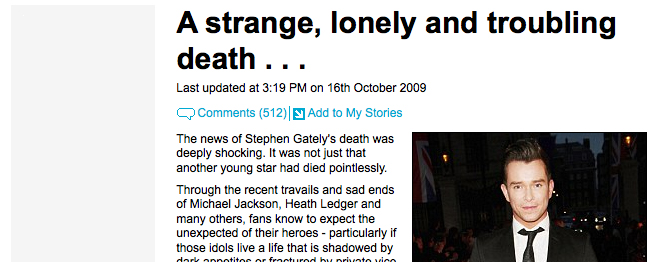This post originally appeared on Malcolm Coles’ blog at this link.
June 2009 saw the Mail Online unexpectedly overtake both the Guardian and Telegraph in the ABCes with the most monthly unique users partly on the back of US traffic and Michael Jackson stories, a position it held for both July and August.
Fast forward to September and the story is the same as earlier in the year – Guardian 1st, Telegraph 2nd and Mail 3rd. So what changed from June to September? To find out, I’ve compared the ABCe figures for UK and foreign visitors in June and September. The difference between the Guardian’s performance and that of the Telegraph and Mail is revealing.
Analysis: The Guardian has seen significant growth in the UK AND abroad.
Table: September unique visitors (millions) and percentage change since June
| Total | Change | UK | Change | Overseas | Change | |
| Guardian | 33m | 14% | 11.9m | 17% | 21.1m | 12% |
The Guardian’s total visitor numbers grew 14 per cent from June to September (up from 29m to 33m). There was a 17 per cent increase in UK visitors and a 12 per cent increase in visitors from abroad. This makes it the most popular online newspaper in the UK by some way (it’s 2.4m ahead of the Mail in second place).
UK visitors accounted for 36 per cent of the total in September (barely changed from 35 per cent in June).
Analysis: Telegraph sees growth overseas
Table: September unique visitors, percentage change since June
| Total | Change | UK | Change | Overseas | Change | |
| Telegraph | 31m | 14% | 9.1m | -1% | 21.9m | 22% |
The Telegraph has also seen a 14 per cent increase in total visitors from June (27.2m) to September (31m).
However, the geographical breakdown is revealing – its UK unique visitor numbers are down one per cent from June to August but its overseas visitors are up 22 per cent (from 18m to 21.9m). It’s now the most visited UK newspaper abroad – but only the 3rd most visited inside the UK.
As a result, the proportion of its visitors that comes from the UK has fallen from 34 per cent to 29 per cent – the lowest of any UK newspaper (the Mail held this honour back in June).
The Telegraph saw the biggest increase in overseas visitors of any newspaper – but because its UK traffic fell, the Guardian beat it into 2nd place.
Analaysis: Mail Online records UK growth only
Table: September unique visitors, percentage change since June
| Total | Change | UK | Change | Overseas | Change | |
| Daily Mail |
30m | 2% | 9.5m | 15% | 20.6m | -2% |
The Mail’s traffic stood fairly still between June and September – it had 30m visitors last month, up just two per cent on three months ago. But its story is the reverse of the Telegraph’s.
The Mail saw strong UK growth – up 14 per cent to 9.5m visitors in three months. Overseas visitors, however, fell by 2 per cent to 20.6m. As a result, it now gets 32 per cent of its visitors from the UK (up from 28 per cent in June).
And the rest …
As for the others:
- The Sun is down to 23m visitors in September, an 8 per cent fall over 3 months. A 15 per cent collapse in overseas visitors couldn’t make up for a 3 per cent increase in UK users.
- The Times is a story of decline – 13 per cent down overall, with a 10 per cent fall in the UK and a 14 per cent fall from overseas.
- The same is true of the Mirror Group (down 5 per cent overall) and the Independent (down 6 per cent overall) but to a lesser extent.
This table has all the stats. If you can’t see the iframe, you can see the full spreadsheet here.
The Express doesn’t take part in the ABCes. The FT does not participate every month.
